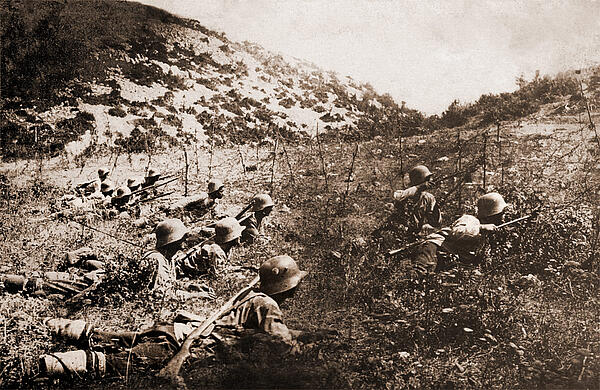The Treaty of Neuilly
The Treaty of Neuilly was signed with Bulgaria at the end of World War One. It required Bulgaria to cede some of its territories as it had been on of the defeated Central Powers. The treaty was signed on 27 November 1919.
The Treaty of Neuilly was seen as a disaster by the Bulgarian people who wanted national liberation and unification. Bulgaria’s claims to wide swathes of territories in Macedonia, Thrace, and Dobrudka were seriously damaged by the treaty.

It also required Bulgaria to cede Western Thrace to the ‘Big Three’, who then ceded it to Greece at the San Remo Conference The treaty also made Bulgaria return Southern Dobruja which had been captured during the war.
Bulgaria was also made to reduce the size of its army to just 20,000 men. It also had to pay reparations of £100 million and recognise the existence of the Kingdom of Serbs, Croats and Slovenes.
The Treaty of Versailles so angered the Bulgarian people that when World War Two broke out the country sided with Nazi Germany. It also reclaimed the land it had to give up in the Treaty of Neuilly. However, at the end of the war its independence was reduced even further when Stalin imposed a pro-communist government. In Bulgaria the treaty is commonly known as the Second National Catastrophe.
See also: The Treaty of Trianon
MLA Citation/Reference
"The Treaty of Neuilly". HistoryLearning.com. 2025. Web.
